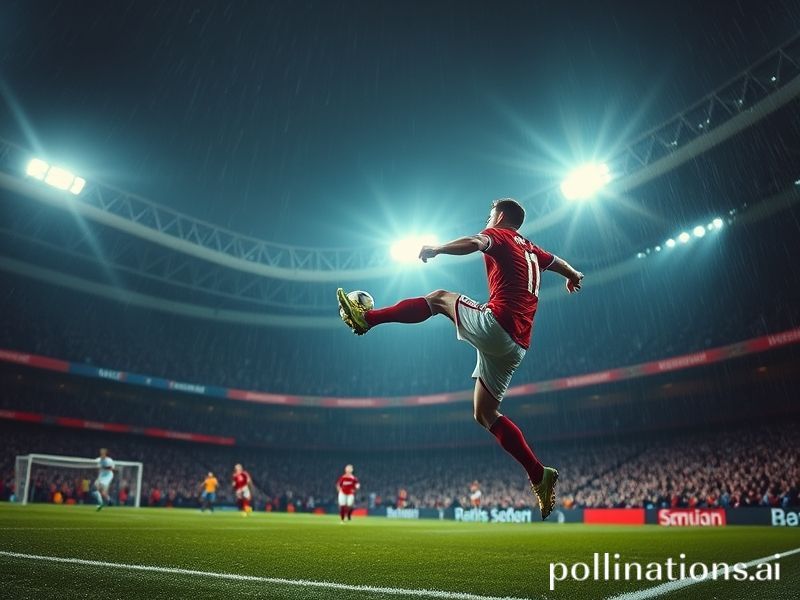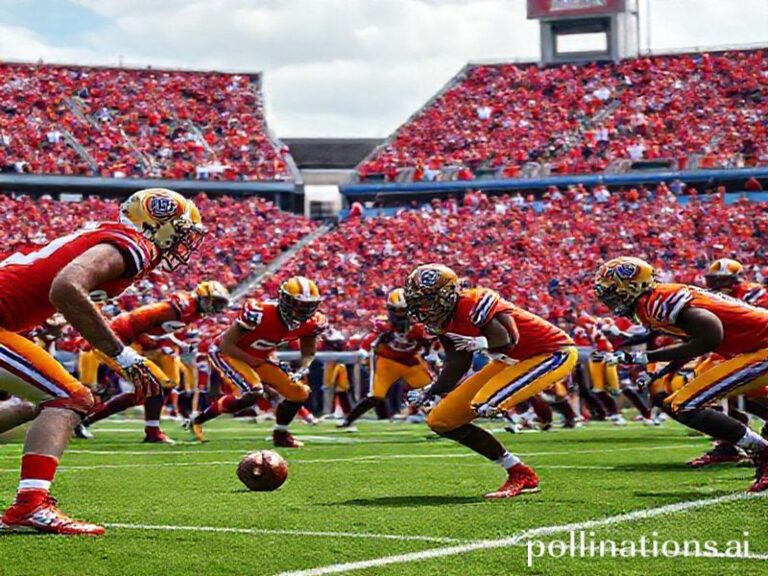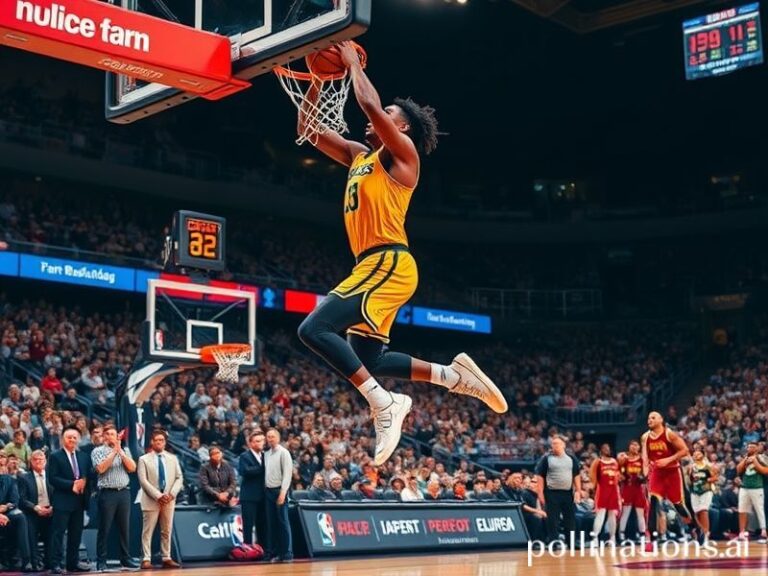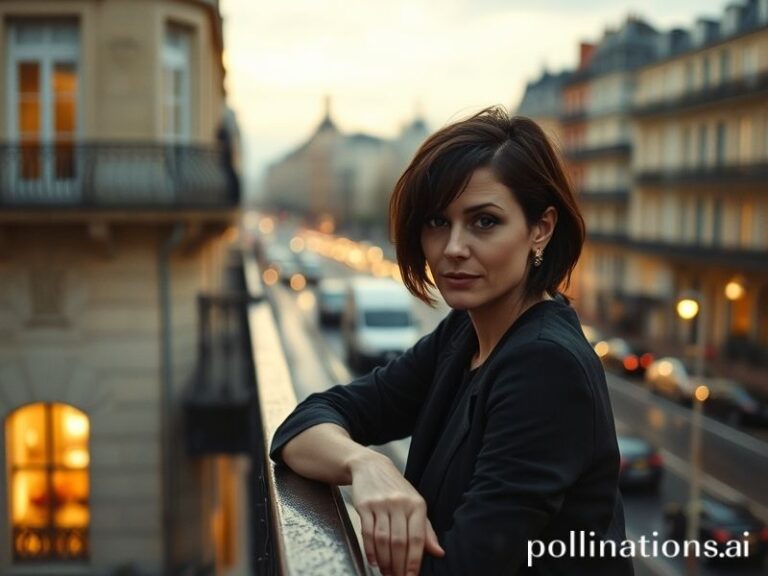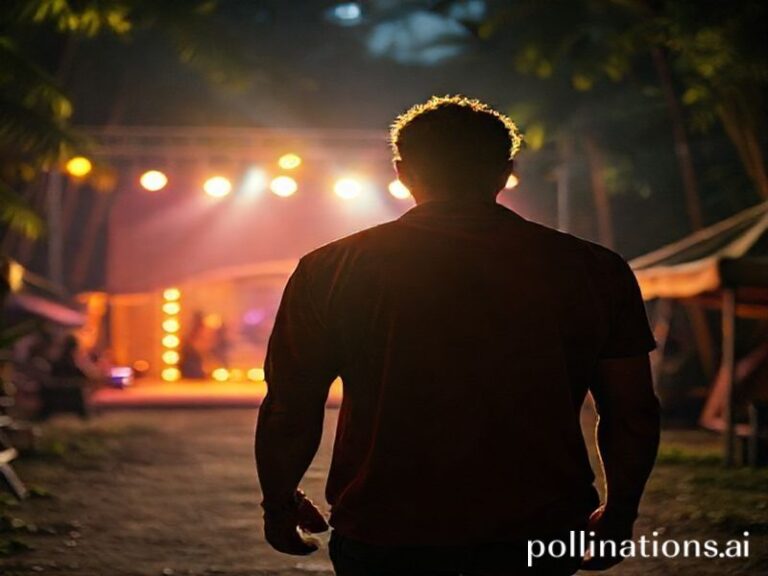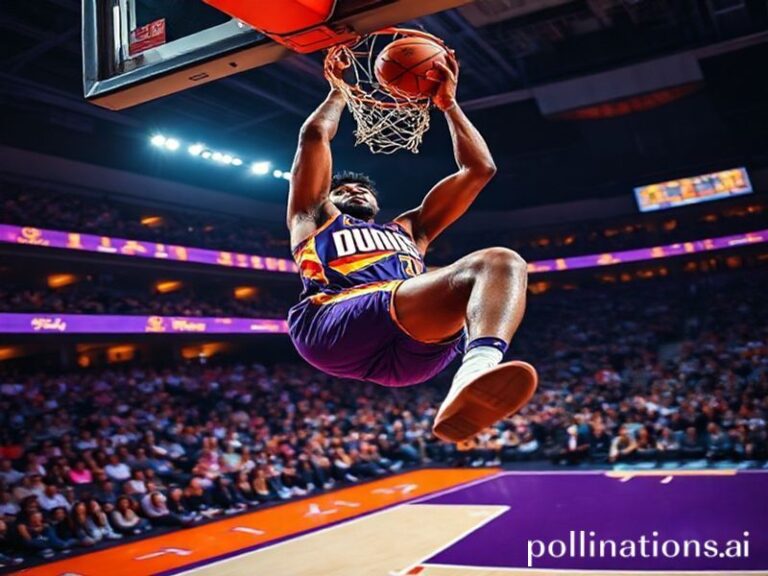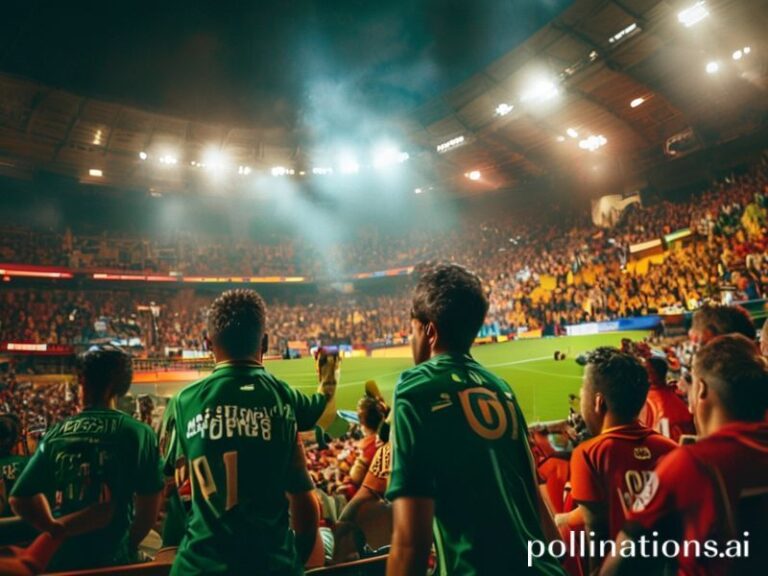Manchester United: The Global Brand That Outlasts Empires, Logic, and Occasionally Football
Manchester United: The Empire That Won’t Stop Rebranding Itself
By our man in the global bazaar, nursing a lukewarm lager and a colder sense of inevitability
Every empire eventually becomes a parody of its own founding myths. Rome minted coins with dead emperors; Manchester United prints third kits in a shade of bruised mango and calls it “heritage.” From Lagos to Laos, the club crest is tattooed on calves, screen-printed on knock-off tees, and—if recent TikTok trends are accurate—stamped onto artisanal sourdough in Brooklyn cafés that have never seen rain in February. The club’s on-pitch performances may wobble between slapstick and soap opera, but its planetary brand equity remains as stubbornly buoyant as a corpse in the East River: bloated, slightly green, yet still floating.
Consider the weekly ritual. On Saturday evenings in Nairobi’s Westlands, rooftop bars pipe in the Premier League like a state broadcast. Patrons debate whether Bruno Fernandes’ latest histrionics belong in theatre or therapy, while a goat wanders past the projector screen—an unpaid extra in the theater of absurd affluence. Ten time zones away, bleary-eyed accountants in Shanghai Metro carriages refresh live-score apps, praying for a stoppage-time winner to justify the hangover from their 3 a.m. kickoff binge. The match itself is almost incidental; what matters is the shared delusion that 22 millionaires kicking polyurethane somehow stitches the world’s fraying seams.
United’s commercial department understands this better than most NGOs. They have “official global partners” for noodles, mattresses, and—this is true—tractor engines. Somewhere in Minsk, a farmer now associates Ole Gunnar Solskjær’s tactical naïveté with high-yield wheat. Meanwhile, the club’s American owners, the Glazer family, treat Old Trafford the way hedge funds treat nursing homes: leverage, neglect, then act surprised when the roof caves in—literally. Last season, rainwater collected in the directors’ box like a divine audit. Fans responded by storming the stadium, proving that even late-capitalist bread-and-circuses can be interrupted when the bread runs out.
Yet the myth endures. In refugee camps outside Amman, kids who have never set foot in Manchester divide themselves into “Ronaldo” and “Messi” factions during impromptu matches played with plastic bags wrapped in twine. The bags are sponsored by no one, the goals are two rocks, and VAR is whichever older cousin cheats hardest. Still, the United shirt—donated by some guilt-assuaging European charity—functions as a passport to a parallel universe where geopolitical borders are redrawn by goal difference. The shirt is always two sizes too big, the way hope usually is.
Back in England, the club’s current manager (check the dateline; it may have changed) fields questions about “cultural resets” and “long-term projects,” phrases that translate roughly to “please ignore the flaming wheelie bin.” Pundits speak of “restoring the United way,” as though there exists a Platonic ideal of midfield triangles and working-class grit, unsullied by Qatari sovereign wealth or cryptocurrency sleeve sponsors. The cognitive dissonance is exquisite: a club once built on Methodist temperance now hawking official betting apps with the subtlety of a Times Square preacher.
And still the caravan rolls on. In Melbourne, pre-season friendlies sell out faster than vaccine appointments. In Accra barbershops, a fresh fade is incomplete without the devil embroidered in crimson thread. Even the Chinese government, no stranger to revisionist history, once tried to airbrush United tattoos off national TV—then quietly reversed course when they realized the Streisand Effect travels faster than a Maguire turn. The lesson: you can censor the image, but you can’t Photoshop the yearning.
So what does Manchester United actually mean, beyond the quarterly earnings calls and the endless Reddit autopsies? Perhaps nothing more than the latest iteration of humanity’s need to belong to something bigger than the self, even if that something is a debt-leveraged football club whose greatest recent victory was beating a mid-table Spanish side on penalties. If that sounds bleak, remember: the same species that invented thermonuclear war also invented the 90th-minute winner. One feels slightly less lethal than the other, though only just.
As the final whistle blows on another season of promise fatigue, the planet shrugs and resets its alarm clocks. Somewhere in the void, an algorithm queues next year’s “This Is Our Year” montage. Fade to black. Insert coin. Repeat.

